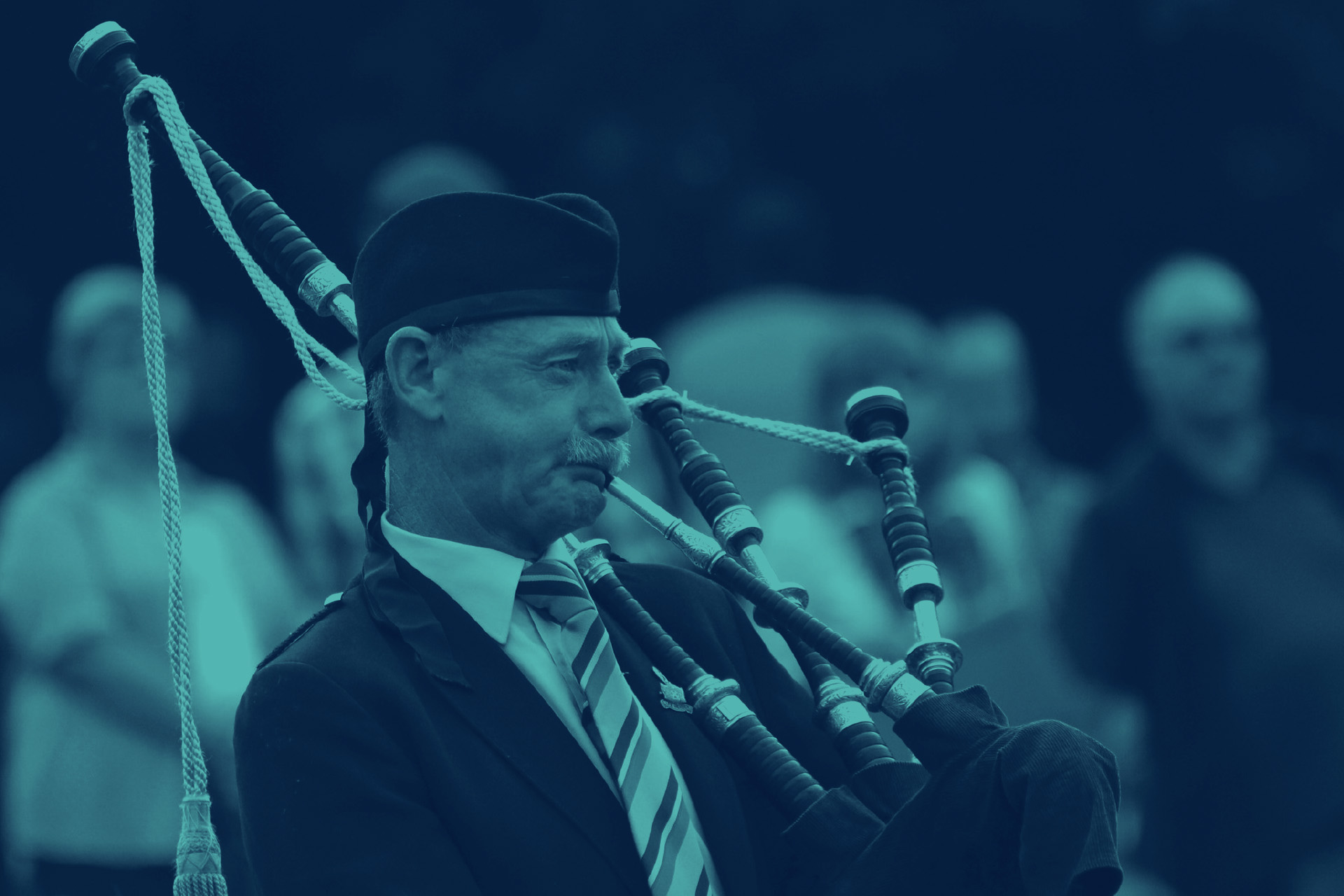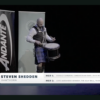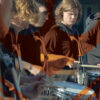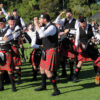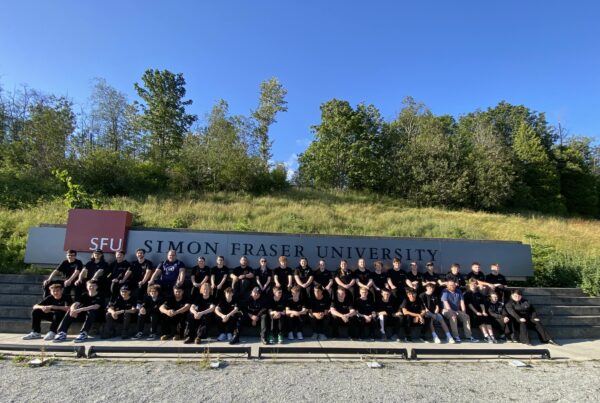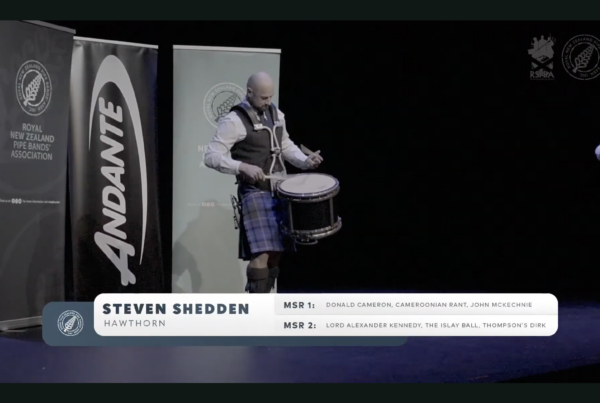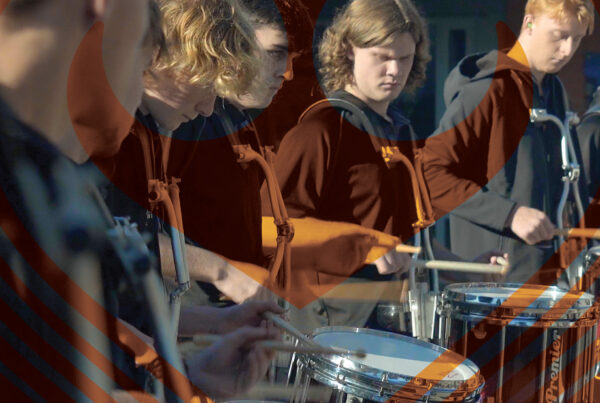Sandy Geyer chats with Bain McGregor.
It’s on a summer’s day in the town of Warkworth, jammed tightly between the Christmas and New year festivities, that Bain McGregor and I have managed to squeeze out a time for him to share his journey with our readers. Bain arrives prepared and we find a table at the local café as the local pub is too noisy (and too tempting) for our concentration levels and my recording/transcribing software to catch our conversation. The table is quickly covered with framed photographs, achievement certificates, and music sheets, each carrying its own significance and a story worth telling. And so with all such stories, we start at the beginning.
Born in 1957, Bain is the fourth generation of the original Scottish immigrants who left Scotland in the early 1800s because of the land clearances. Led by the legendary Reverend Norman McLeod they first sailed to Nova Scotia (New Scotland, a province of Canada) then Australia, and finally settled in Waipu, which is Red Waters in Māori, in 1853. Bains paternal great grandfather Roderick McGregor was the first local blacksmith in the town of Waipu. Bain was diagnosed an asthmatic at the age of four and the family doctor suggested that he blow on balloons as a lung treatment. He chose instead to blow on the blow stick of his father’s bagpipes, a set of Peter Henderson’s purchased in 1936. At the age of nine, his father officially started him off on the pipes with a “by ear” method well known amongst fiddlers in Nova Scotia as the Suzuki method. Suzuki was a Japanese violinist who believed that it was beneficial to create an environment of music learning, which paralleled the linguistic nature of learning a native language. This learning method starts to shed some light on the origins of Bains well known “ear” for tone excellence. Bain then progressed to the tuition of Lewis Turrell MBE who was in Whangarei at the time, working for Woolworths. Whilst his tutor for only one short year, Bain describes Lewis as “a wonderful gentleman” who was often feasting on toast and honey when Bain arrived for his lessons. He suspects that the morning honey might have been a reliable antidote for the previous evenings partaking.
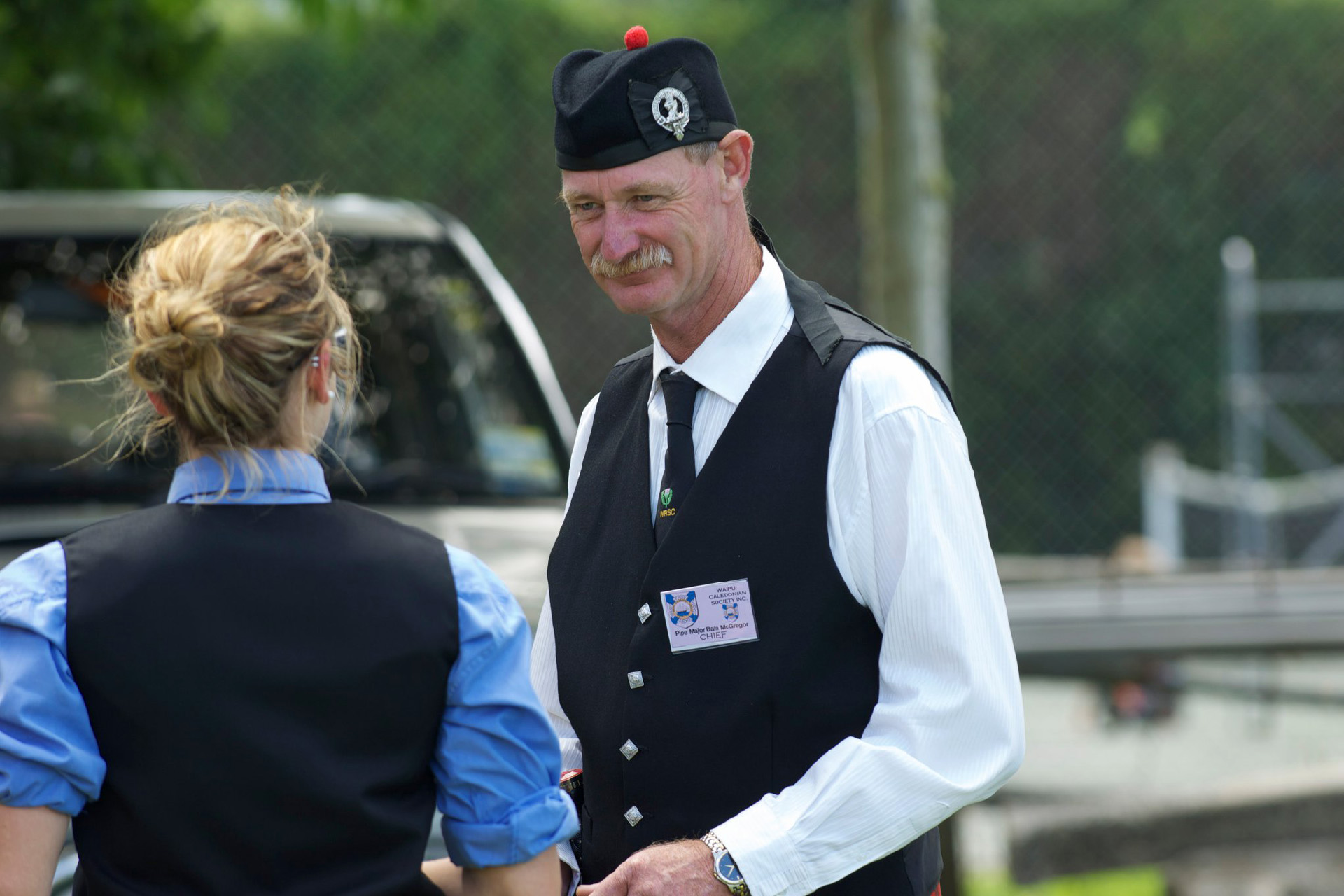
At the age of ten Bain started playing with the Waipu Pipe Band with his father, Willy Schultz, and Happy Finlayson, and was elected pipe major from 1976 to 1985. He was invited to also join the Whangarei and County Pipe band in 1976 where Glenn Hamilton, a high standard solo player was the pipe major, followed by Ken McLennan. Bain recalls that his good ear earned him the role of band tuner from quite early on. In the mid to late 1940s the Whangarei Pipe Band Committee, headed by President Lou Morgan searched Scotland for a formidable player as a tutor, and came across Angus MacAulay, who was originally from Benbecula in Uist. Angus represented a fine line of tutoring excellence as he was taught by John McDonald of Inverness, who also taught Donald MacLeod. “Wee” MacLeod taught Lewis Turrell and Stewart Finlayson, and lots of other New Zealand players from the late 1950s to the late 1960s. “We were incredibly lucky to have Angus MacAuley who also taught me and David Picketts”, Bain reflects “as it was from a direct link to the MacCrimmon piobaireachd”.
Under Angus’s passionate tutoring, which often required his pupils to play up to six piobaireachd in a row, Bain won the Gold Medal in 1984 at Hastings.
The following year, whilst down in Wellington for another solo competition, Bain put his hand up to a request on behalf of the Duke of Athol, via John Hanning, to apply for the role of the private piper in residence at Blair Castle Blair Athol. A couple of long flights later Bain found himself being greeted by the chief tour guide of the castle, Dave MacLeod, and was introduced to his private piper role. He was lodged in a stone building known as the stables, and required to play his pipes at set times in the day for the tour groups coming through the castle. Bain grins broadly as he remembers his lodging quarters being surrounded only by widows, ensuring he was kept far away from where the younger girls stayed.
A few weeks into his new piping role a very significant week happened in Bain’s journey. On Monday he called off an existing relationship which had traveled with him from New Zealand to Scotland but did not endure much beyond the trip. On Tuesday three young girls, Fiona, Yvonne, and Helen (Bain’s future wife) arrived at the castle for an interview to be tour guides. On the Wednesday Bain received a request to play outside the castle for a group visiting from NATO who was there studying the sun. Whilst an unusual request Bain didn’t think anything of it and happily obliged. In mid tune, Jimmy Stewart, the sergeant major of the Athol Highlanders set off a canon standing parallel to him. “All I heard was a loud “KA” and then an enormous “BOOM” and all the trees in front of us started to shake. I leaped straight up into the air as the secretary of NATO, who was standing watching fell to the ground with hysterical laughter”. “Did you drop a note”, I ask. “Several”, he chuckles, “and just about swallowed my blow stick! Boy did they set me up!” The cannon experience seemed to impress the laughing NATO secretary, who sent a number of scented letters back to Bain from America after the party returned home. But her efforts were to be in vain as the very next evening, the three young tour guides – Fiona, Yvonne and Helen, invited Bain and his friend Gordon Duncan out to the pub for a few drinks. Bain recalls that he and Gordon (who he refers to as machine-gun bullet fingers) were already a few whiskys along and readily agreed to the invitation. The party, at a pub called the Athol Arms, warmed up quickly with Yvonne settling herself on Bain’s knee. Helen asked a mutual friend if they were an item. “No”, the friend replied, “kick her off!” So Helen did, and that’s how their relationship started.
Shortly after that Gordon Duncan invited Bain to accompany him to compete at the Uist Games. Well into the wee hours of the morning he opened his door to a loud knock to find Gordon Duncan and Gordon Campbell with beers and whisky all present and ready for a party. So with little sleep, on top of lots of liquor, they arrived at the games early the next day to find that Bain was first on the board at 9 am. The judge, Iain MacFadyen (tutor of sky) placed him third after asking “who taught you, boy?” Bain doesn’t seem sure if his placing was due to the reputation of his tutor, Angus MacAuley, or the fact that he was still inebriated and therefore played with no fear whatsoever. But being placed third again in the very next solo competition in South Uist earned him a reputation of consistency along with an invitation to join the band, Scott Rail Vail of Athol led by Ian Duncan. In preparation for a mini band contest soon after the players were broken down into the A-Team led by Ian Duncan and the B-team, led by Gordon Campbell. They were playing the same tunes but the B-team, with which Bain played, unexpectedly beat the A-team. “When the results were announced Ian Duncan turned around to Gordon Campbell and said “Well, you certainly didn’t bloody tune that band. I bet it was that colonial prick,” Bain narrates with a very loud laugh which turns the heads of the tables next to us.
Prior to Bain’s time with the band, they were placed third in grade one world pipe band championships. His solo playing was also positively influenced whilst in Scotland under the tutorship of Jimmy McGregor of Blair Gowrie Scotland.
When Bain returned from Scotland, after also working for six months as a chauffeur to George Lambie and as a greenkeeper at the Gleneagles (Queens) golf course in Auchterarder, he did so with Helen, who had just turned 20, by his side. They married in New Zealand and moved to Waipu after starting off in Whangarei. He also returned with a tune called Bains Misfortune which he found written for him by Gordon Duncan and left in his room at the stables after his Austin Princess banger was damaged in an accident. Bain was appointed pipe major of Whangarei Pipe Band whilst still in Scotland in 1986, and also competed nationally and internationally with Auckland and District/American Airlines Pipe Band from 1988 to 1995 under the leadership of Pipe Major Stewart Finlayson where his tuning skills again, were highly valued and utilised.
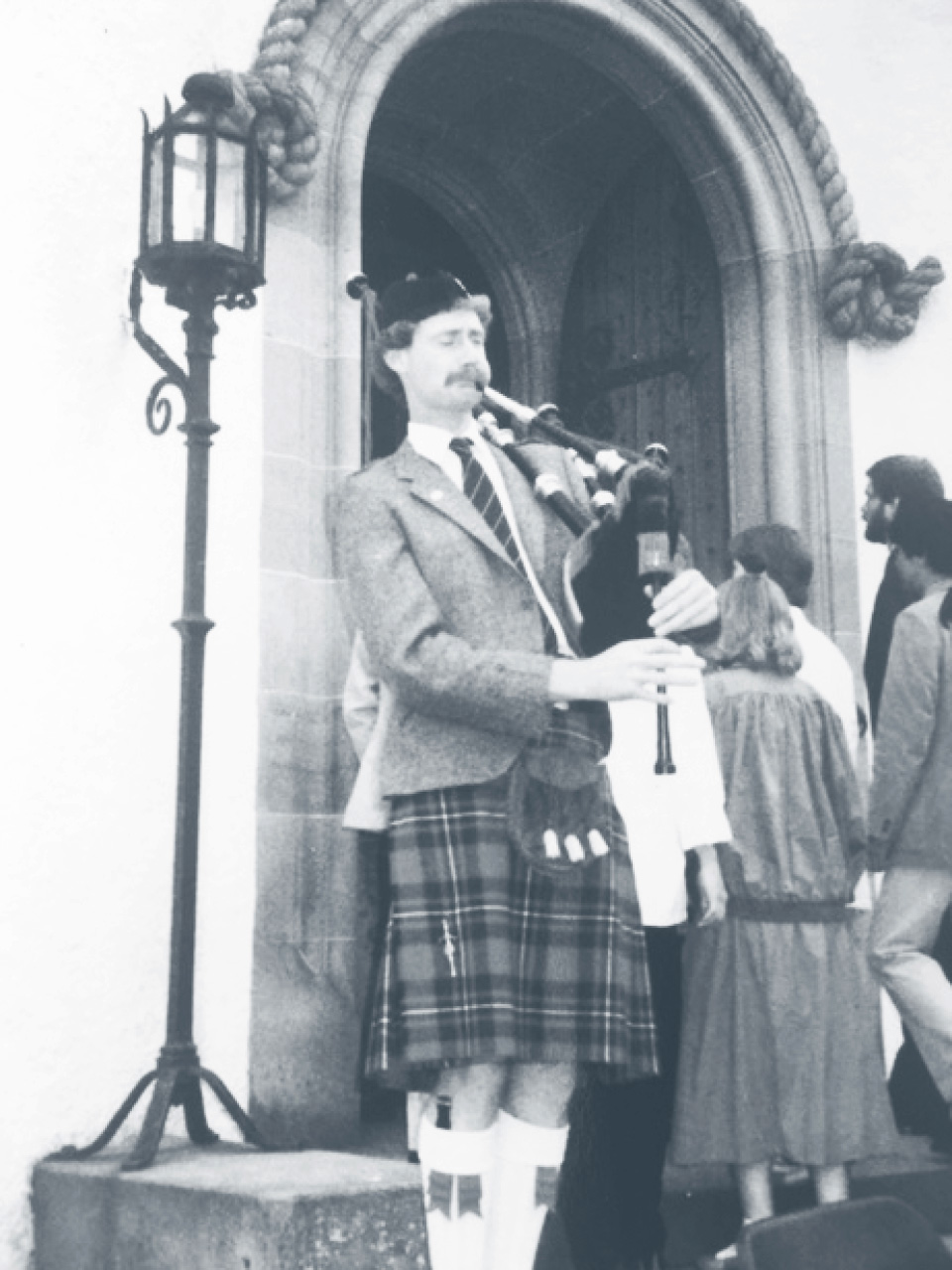
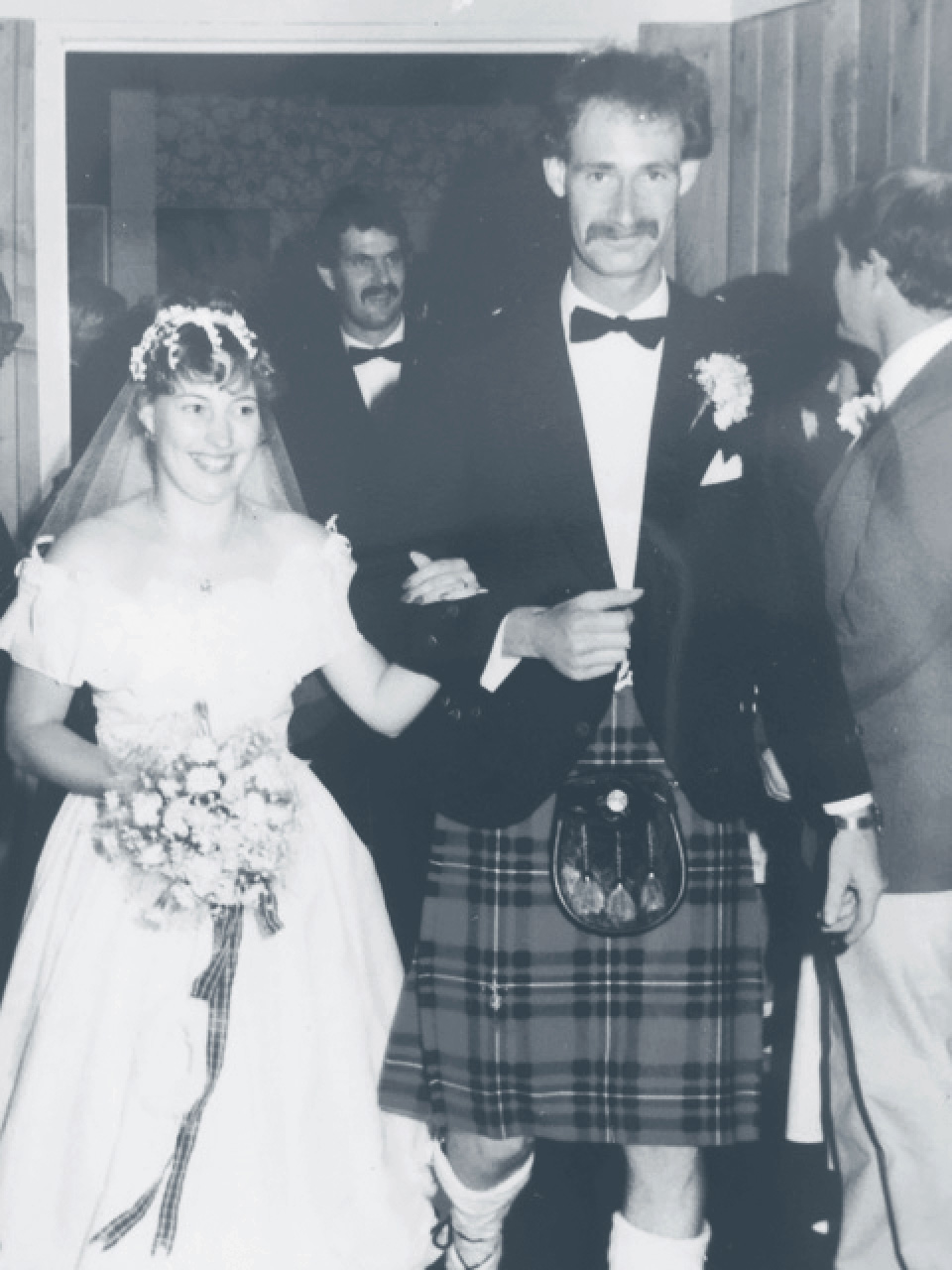
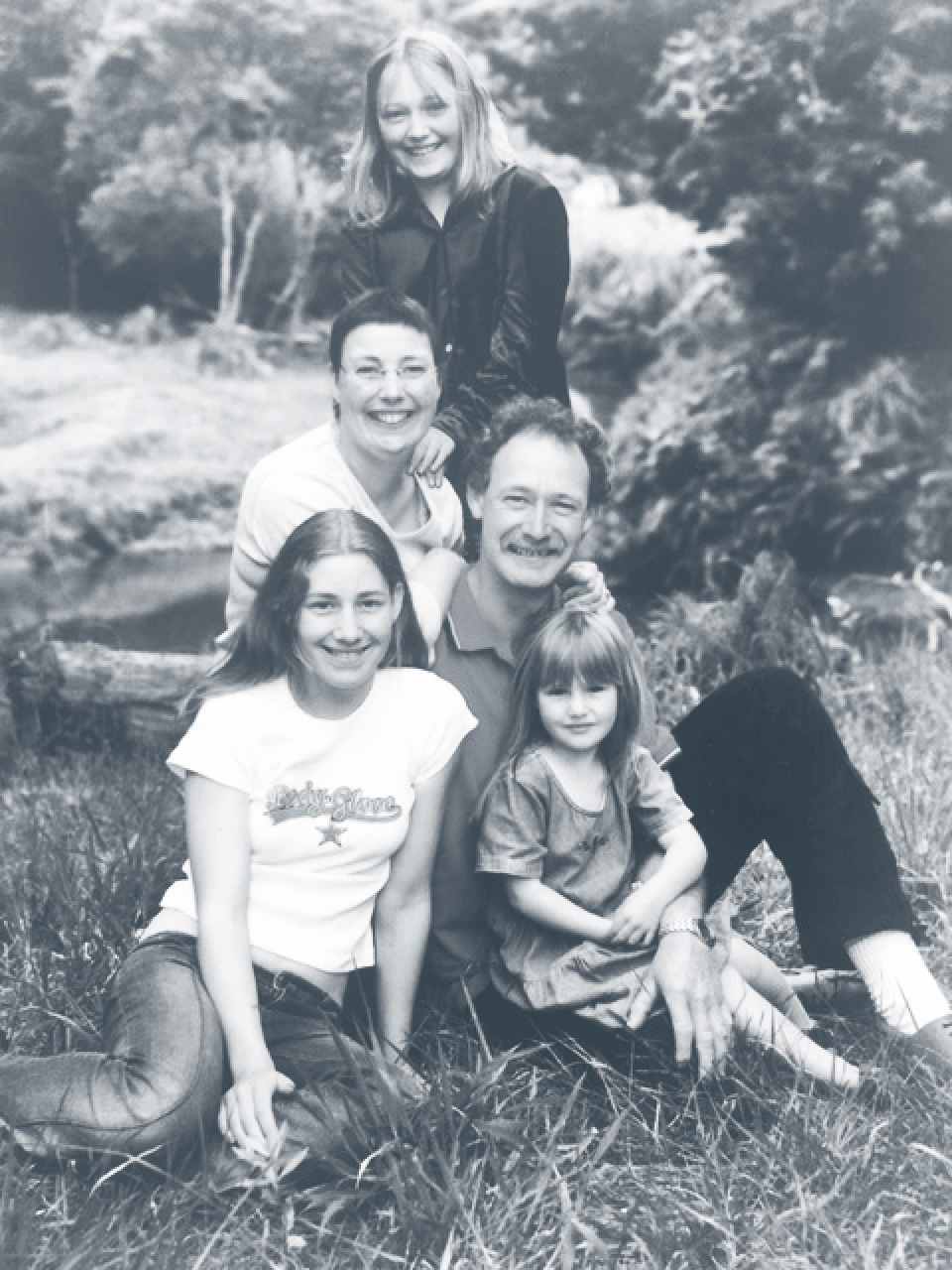
Bain and Helen were blessed with three daughters – Briar, Rowan, and Sian but in 2000 Helen was diagnosed with breast cancer. Her surgery was delayed due to a doctor’s strike and the cancer progressed quickly. After a brave battle, she passed away in 2003. “She was so strong. She was my soul mate”. Bain sits quietly for some time. Helen was an accomplished French horn player, tenor horn player, and tenor drummer and played in both the pipe band and the brass band. She was also very involved in the Caledonian Society, worked in the museum, and was often chief piping steward at the Waipu games. And so, on the day that Waipu turned out to mourn one of their own, the funeral procession stretched from one side of Waipu to the other. Both the brass and the pipe bands played Helen through her final journey through the town in a coffin full of rainbows as she had wanted. Bain continues “my daughters were thirteen, eleven and four when we lost her. It was such a bombshell. You wonder…..you know, if you can cope. But then you do. I did have a second marriage that sadly didn’t work out as mixing families just became too hard. And the pipe band family was a massive influence on my well-being”. He brightens again “but my girls are still with me. They are such a huge part of their mum and I love them so much”. I ask if his girls picked up any of their musical heritage. “Briar and Rowan learned highland dancing which was Helen’s wishes and Rowan has Helen’s theatrical side. Only Sian played the pipes, the little bugger when she was eleven and she was very good, but she didn’t stay with it. She says I was too hard on her” he laughs, “but she did come in with us and play the tenor drum too”.
Our time together comes to an end as Bain needs to hurry back to Waipu to prepare for the Helen McGregor Memorial Trophy which is held each New Year’s Eve and the Waipu Highland Games held each New Year’s Day. The event is not a formal one this year as the COVID -19 outbreak has pushed the official 150th to 2022 (we hope) when the visitors and judges from overseas can be here. But there is still lots to do for the significant day in a town that whilst having sadly lost the Gaelic language of its forefathers, has fiercely held on to many other of their Celtic traditions displayed proudly each New Year’s Day.
And so we part ways and I have time to reflect as I drive back to Auckland on what has been an inspiring, moving, and educational listening experience. Through Bain’s story, peppered with myriad piping greats from both Scotland and New Zealand, run the many deep and meaningful themes of his heritage – hard work, teaching, courage, gratitude, love, commitment, grief, and resilience. He is an example of how the music of the great highland bagpipe, an instrument that encompasses and inspires a diverse range of emotions, is passed from one significant player to another. Bain is incredibly proud of the quality of the New Zealand players who have made their international marks and he certainly stands very tall amongst them. It has been my privilege to share in the of telling his story.

